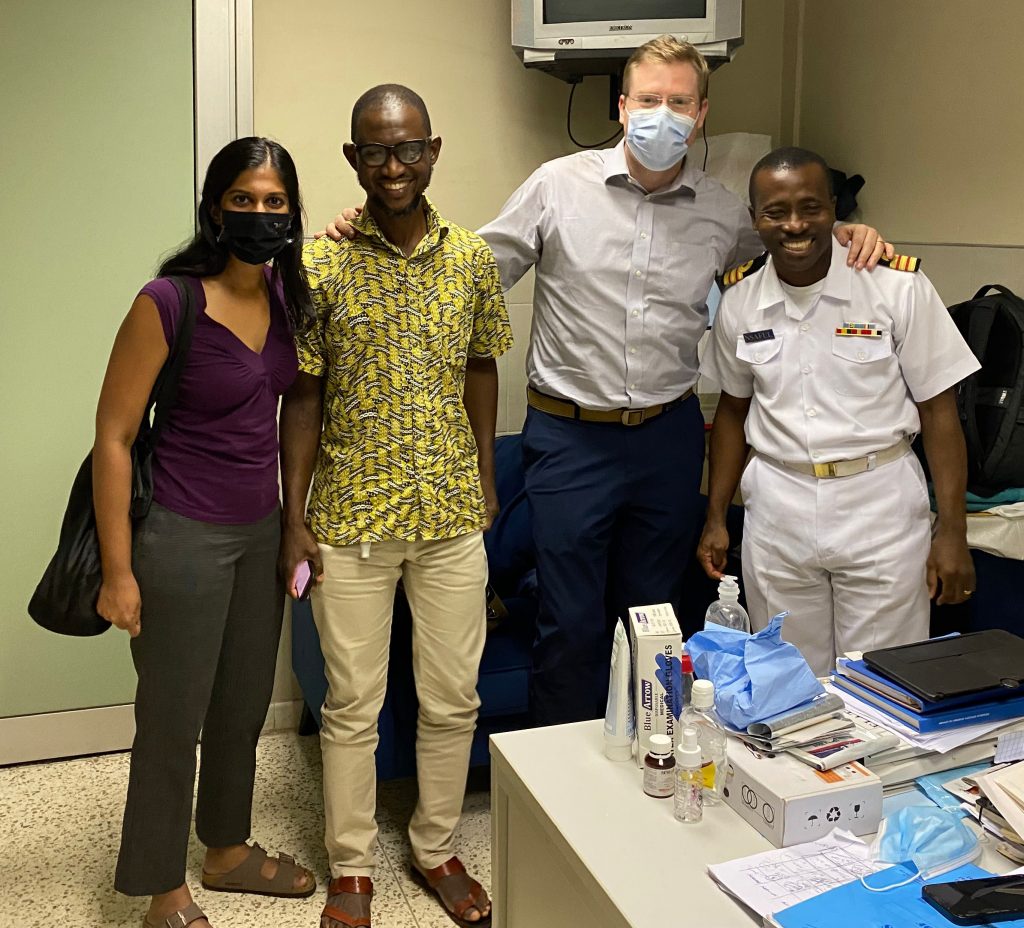Toward New Paradigms in Global Burn Care

Barclay Stewart, MD, PhD, MPH
Assistant Professor
Division of Trauma, Burn & Critical Care Surgery
Dr. Barclay Stewart, Assistant Professor, Division of Trauma, Burn & Critical Care Surgery, at Harborview Medical Center and core faculty within Harborview Injury Prevention and Research Center’s (HIPRC) Global Injury Section, is working to reduce preventable death and disability after burn injury. The vast majority of burn injuries happen in low- and middle-income countries (LMICs) due to energy poverty, unsafe cooking arrangements, and insufficient policies and regulations around specific hazards. People living in LMICs and in other austere settings (e.g., frontline military environments, remote and rural communities, etc.) commonly lack access to organized trauma and burn care systems. As a result, most people who sustain a major burn injury do not receive immediate, goal-directed fluid resuscitation, which leads to preventable death and disability from shock, acute kidney injury, lung injury, compartment syndromes, and progression of the burn injury.
Delays in resuscitation stem from resource limitations (e.g., lack of crystalloid solutions, central venous access devices, and monitoring equipment), stressful operational environments and limited burn care expertise. These issues can be overcome, in part, by an operationally advantageous method of resuscitation that can be done by patients themselves, their family or friends, lay and medical first responders, and by hospital-based providers. Enteral resuscitation – drinking fluid or having it administered through a nasogastric tube – is simple, operationally advantageous, safe and has proven efficacy for large volume resuscitation (e.g., cholera). Additionally, enteral resuscitation may promote intestinal blood flow and mitigate pathologic changes in gut immune function and shifts of microbiomes. The latter have known implications on the risk of developing acute respiratory distress syndrome (ARDS), sepsis and multiple organ dysfunction after major injury. Despite the potential utility of enteral resuscitation, controlled study of enteral resuscitation compared to intravenous (IV) resuscitation has not been performed.

Left to right: Drs. Charles Mock, Tam Pham, Monica Vavilala, Adam Gyedu, and Shankar Man Rai
With outstanding mentorship from Drs. Charles Mock, Professor and HIPRC Global Injury Section Lead, Tam Pham, Professor & Chief, Burn Center, Division of Trauma, Burn & Critical Care Surgery, Monica Vavilala, HIPRC Director, Adam Gyedu and Shankar Man Rai, Dr. Stewart has received funding from the Department of Defense, NIH/Fogarty Center and institutional grants to study the effectiveness, implementation and gut-related impacts of enteral resuscitation with studies in:
- Ghana (funded, seeking approvals) – cluster-randomized effectiveness trial at 24 hospital country-wide
- Nepal (enrolling) – single-center randomized trial with focus on implementation
- Harborview (data being collected) – multi-center observational study of enteral fluid administration and resuscitation outcomes
- Harborview and Nepal (enrolling) – microbiome science projects to understand impacts of enteral resuscitation on the relative abundance of taxa within the gut and wounds of burn-injured patients.

Drs. Barclay Stewart and research resident Kajal Mehta in Ghana
meeting with collaborators Dr. Adam Gyedu (surgeon and injury
control researcher at Kwame Nkrumah University of Science and Technology) and Commander Kwesi Nsaful (surgeon and burn director
at 37 Military Hospital) to discuss logistics of U.S. Department
of Defense-funded, ‘Far-Forward, Fluid First,’ enteral
resuscitation (4F EnteroResus) for major burn injuries in Ghana:
a hybrid type II effectiveness-implementation cluster randomized trial.
Our goal is to determine who should receive enteral resuscitation, how to deliver it to maximize safety and effectiveness, and if it is operationally and/or physiologically advantageous compared to IV resuscitation. Stay tuned for data, implications and implementation toolkits from these projects in the months and years to come!
In addition to advancing the science of burn resuscitation in austere settings, these projects are promoting collaborative relationships with UW Department of Surgery and UW Medicine Regional Burn Center with HIPRC, long-time and new international research partners, Ghana Health Service, and Walter Reed/AFRIMS Research Unit in Nepal (WARUN). These projects also support resident and fellow research and development of future surgeon researchers at UW and within Ghanaian and Nepalese training programs.
